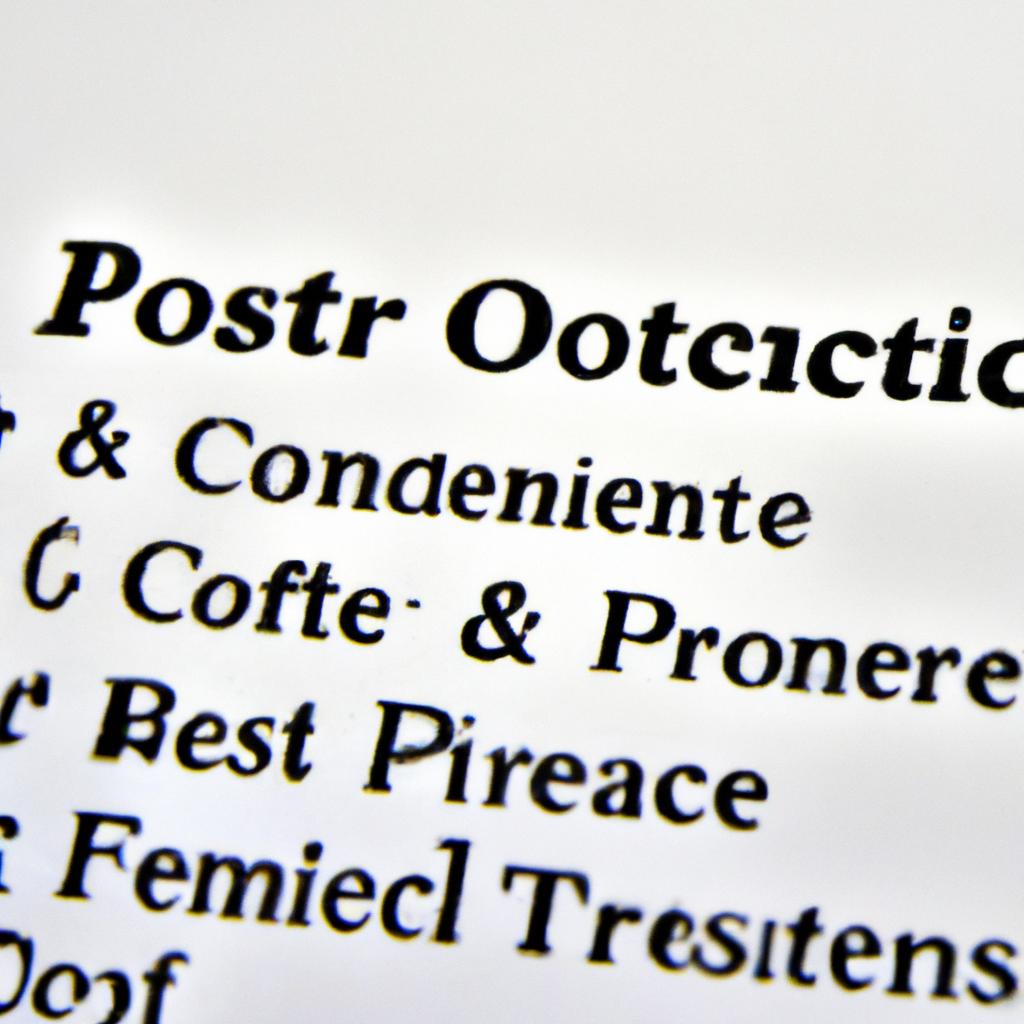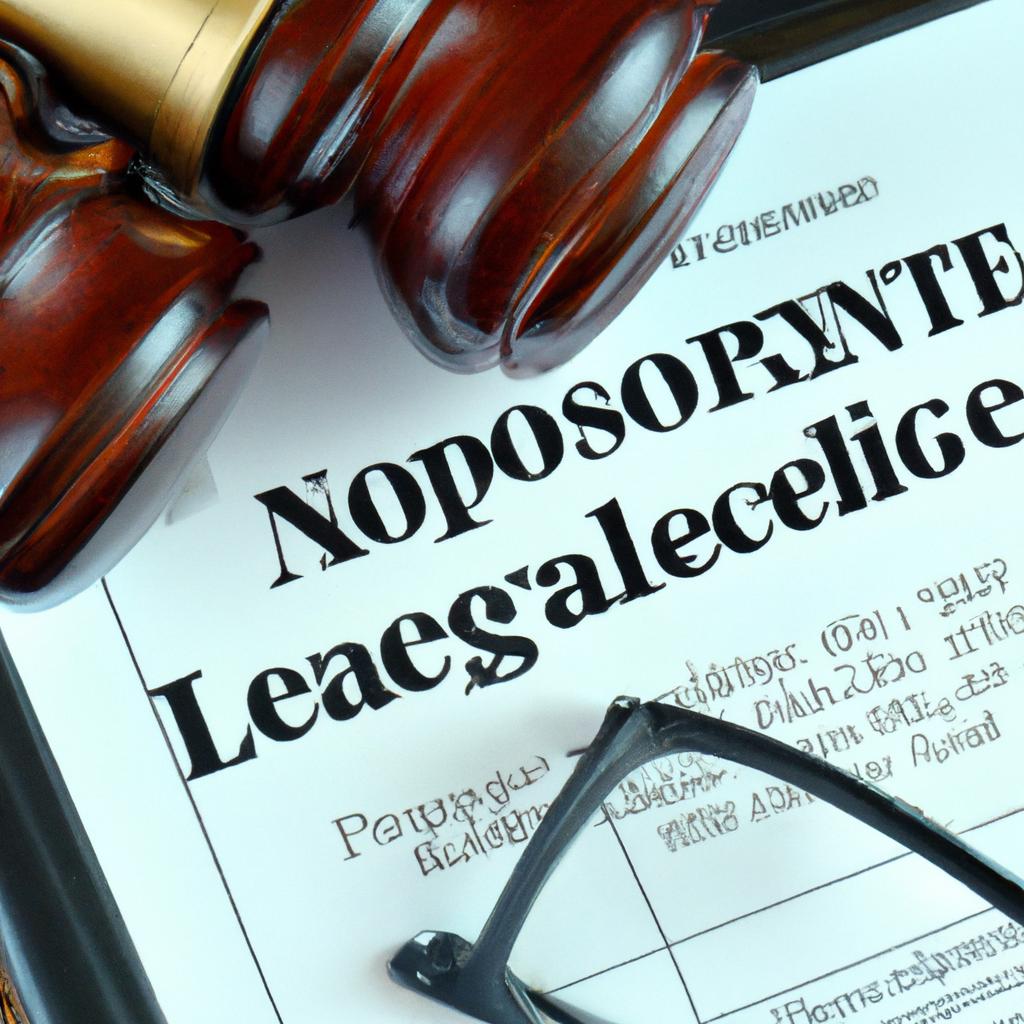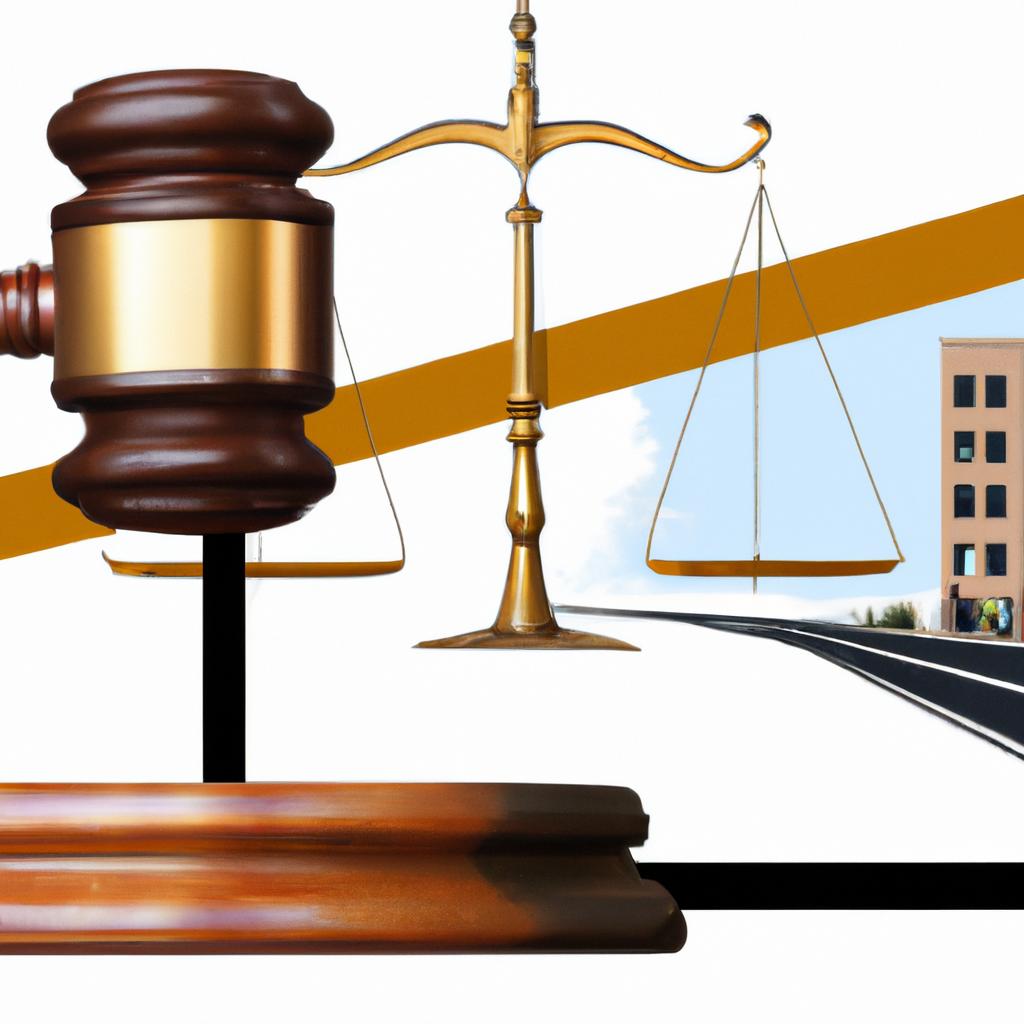Probate can be a complex and costly process that many individuals may find daunting. As a seasoned lawyer at Morgan Legal Group in New York City, we understand the importance of demystifying the financial implications of navigating probate. In this article, we will explore the question on many individuals’ minds: “How much does it cost to go through probate?” By shedding light on the various fees and expenses associated with the probate process, we aim to equip our readers with the knowledge needed to make informed decisions regarding their estates.
Understanding the Financial Implications of Probate
When it comes to , one of the most common questions people have is: “How much does it cost to go through probate?” The cost of probate can vary depending on several factors, including the size and complexity of the estate, the state in which the probate is being conducted, and whether or not any disputes arise during the process. Some of the common expenses associated with probate include court fees, attorney fees, executor fees, appraiser fees, and accounting fees. It’s important to understand these costs upfront so that you can adequately plan for them.
One way to potentially reduce the costs of probate is to create a comprehensive estate plan that includes strategies to avoid or minimize the need for probate. This may include setting up a trust, designating beneficiaries on certain accounts, or making gifts during your lifetime. By working with an experienced estate planning attorney, you can develop a plan that meets your goals while also minimizing the financial burden of probate for your loved ones. Remember, proper planning now can save you and your family time and money in the long run.

Factors Affecting the Cost of Probate
Factors that can impact the cost of probate include:
- Size and complexity of the estate
- Number and types of assets owned by the deceased
- Existence of a valid will or trust
- Debts and liabilities of the deceased
In addition, the location where the probate is being conducted can also affect costs. Different states have varying laws and regulations regarding probate, which can impact the overall expenses. Hiring a knowledgeable probate attorney can help navigate these complexities and potentially reduce costs by ensuring all legal requirements are properly met.
| Size of Estate | Complexity of Assets |
| Number of Creditors | Legal Fees |

Recommendations for Minimizing Probate Costs
When considering the costs associated with going through probate, it is important to take into account a variety of factors that can impact the final expenses. To minimize probate costs, here are some recommendations:
- Plan Ahead: By creating a comprehensive estate plan that includes a Will and trusts, you can ensure that your assets are distributed according to your wishes and minimize the need for probate.
- Joint Ownership: Consider holding assets jointly with a spouse or child to avoid probate costs associated with transferring ownership after death.
| Recommendation | Impact on Probate Costs |
|---|---|
| Plan Ahead | Minimizes probate costs by avoiding court involvement in asset distribution. |
| Joint Ownership | Reduces probate costs by simplifying the transfer of assets. |

Navigating Probate Expenses with Legal Guidance
When navigating probate expenses, it is crucial to understand the various costs involved in the process. While the fees associated with probate can vary depending on the complexity of the estate, having legal guidance can help you minimize unnecessary expenses. Here are some common costs to consider when going through probate:
- Court Fees: This includes filing fees, executor fees, and any other costs associated with court appearances.
- Attorney Fees: Hiring an experienced probate attorney can help streamline the process and ensure everything is done correctly, but it comes with its own costs.
- Appraisal Fees: Having assets properly appraised is essential for determining the estate’s overall value and determining any potential tax liabilities.
When working with a knowledgeable probate attorney from Morgan Legal Group, you can rest assured that your assets are being handled with care and efficiency. We can help you navigate the complexities of probate, protect your assets, and minimize unnecessary expenses along the way. Contact us today to schedule a consultation and start planning for the future of your estate.
| Service | Typical Cost |
|---|---|
| Court Fees | $500 – $1,500 |
| Attorney Fees | $3,000 – $7,000 |
| Appraisal Fees | $300 - $1,000 |
Q&A
Q: What is probate and why is it necessary?
A: Probate is the legal process in which a deceased person’s will is validated and their assets are distributed to heirs and creditors. It is necessary to ensure that the deceased’s wishes are carried out and to settle any outstanding financial obligations.
Q: How much does it typically cost to go through probate?
A: The cost of probate can vary depending on a number of factors, such as the size of the estate, the complexity of the assets, and whether or not there are any disputes among heirs. On average, however, probate can cost anywhere from 3-7% of the total value of the estate.
Q: What are some of the common expenses associated with probate?
A: Some common expenses associated with probate include court filing fees, attorney fees, executor fees, appraisal fees, and possibly accounting fees. These costs can add up quickly, particularly in cases where the estate is large or complex.
Q: Are there ways to minimize the cost of probate?
A: Yes, there are several strategies that can help to minimize the cost of probate. These include creating a living trust, naming beneficiaries on accounts and assets, and keeping detailed records of all assets and debts. Additionally, working with an experienced estate planning attorney can help you navigate the probate process more efficiently and cost-effectively.
Q: Are there any circumstances in which probate may be waived?
A: In some cases, probate may be waived for small estates or if the deceased had certain types of assets that are not subject to probate. Additionally, if there is a valid will in place and all beneficiaries are in agreement, probate may be able to be avoided altogether. It is important to consult with an attorney to determine the best course of action for your specific situation.
Key Takeaways
In conclusion, the cost of going through probate can vary depending on various factors such as the size of the estate, the complexity of the assets, and the location. While it can be a daunting process, understanding the potential costs involved can help you better prepare for the future. Remember, seeking the advice of a probate attorney can help guide you through the process and ensure that your loved ones are taken care of. Thank you for reading!
 Probate is a legal process that involves the distribution of a deceased person’s assets, and it can be a daunting and confusing process for those who are unfamiliar with it. One of the biggest concerns that people have when it comes to probate is the cost associated with it. In this article, we will take an in-depth look at how much you can expect to pay for probate and what factors can influence the overall cost.
Probate is a legal process that involves the distribution of a deceased person’s assets, and it can be a daunting and confusing process for those who are unfamiliar with it. One of the biggest concerns that people have when it comes to probate is the cost associated with it. In this article, we will take an in-depth look at how much you can expect to pay for probate and what factors can influence the overall cost.
Before we dive into the specifics of how much probate costs, let’s quickly define what it is. Probate is the court-supervised process of transferring a deceased person’s assets to their beneficiaries. During this process, the court will validate the deceased person’s will (if one exists), determine the value of their assets, and pay any outstanding debts and taxes. Once all of these steps have been completed, the remaining assets will be distributed to the beneficiaries according to the terms of the will or state law.
Now, let’s get into the cost of probate. The overall cost can vary depending on various factors, such as the complexity of the estate, the state in which the deceased person lived, and the type of probate process used. Generally, the cost of probate can be broken down into three main categories:
1. Court Fees
2. Legal Fees
3. Other Expenses
Court fees are the costs associated with filing the necessary paperwork and appearing in court. These fees can range from a few hundred dollars to over a thousand, depending on the state and the value of the estate. Let’s take a look at some examples:
– In California, the court filing fee for a probate case is $435 for an estate valued at $500,000. For every additional $100,000, an extra $9 is added to the fee, up to a maximum of $10,000.
– In New York, the court filing fee is $1,250 for estates valued at $500,000 or less, and an additional $15 for every $1,000 of assets over $500,000.
– In Texas, the court filing fee is $330 for an estate valued at $250,000 or less, and an additional $25 for every $100,000 of assets over $250,000.
Legal fees are another major cost associated with probate and can vary greatly depending on the complexity of the estate and the type of probate process used. In general, the more complicated the estate, the higher the legal fees will be. Most states allow attorneys to charge a percentage of the estate’s value as their fee, with the average being around 3% to 5%. For example, if an estate is valued at $500,000, the legal fees could range from $15,000 to $25,000.
Lastly, other expenses can include appraiser fees, court-appointed executor fees, and any other necessary costs, such as publishing notices or hiring an accountant to help with tax filings. These expenses can add up quickly, so it’s essential to keep track of them and budget accordingly.
It’s worth noting that not all assets go through probate. For example, assets with designated beneficiaries, such as life insurance policies and retirement accounts, will bypass the probate process and go directly to the designated beneficiaries. However, these assets may still be subject to taxes and fees, so it’s crucial to consider these costs as well.
Some states also have simplified probate processes for smaller estates, which can significantly reduce the cost. For example, in California, estates valued at $166,250 or less can go through a simplified procedure, known as a “small estate affidavit,” that does not require court supervision or legal fees.
In some cases, beneficiaries may be responsible for covering some or all of the probate costs. These costs can be paid from the deceased person’s estate before the remaining assets are distributed to the beneficiaries. However, if the estate does not have enough funds to cover the costs, the beneficiaries may be required to pay out of pocket. It’s essential to discuss these potential costs with an attorney before beginning the probate process to avoid any surprises.
As mentioned earlier, the cost of probate can vary significantly depending on the factors we’ve discussed. To give you a better idea of the costs associated with probate, here is a case study.
Samantha’s father passed away, and she found out that he had a will but did not specify any beneficiaries. Samantha’s father’s estate was valued at $750,000, and he lived in California. Samantha hired an attorney to help her through the probate process, and she paid the following fees:
– Court fees: $4995
– Legal fees ($21,500): 3% of the estate’s value
– Other expenses (appraiser, executor fees, etc.): $2,000
In this case, the total cost of probate for Samantha was approximately $29,495, which accounts for nearly 3.93% of the estate’s value. As you can see, the costs can add up quickly, and it’s essential to be aware of them before beginning the probate process.
Now that we’ve covered the costs, let’s talk about some benefits and practical tips when it comes to probate. Some benefits of probate include:
– Court supervision: Having a court oversee the probate process can provide protection to the beneficiaries and ensure that the executor follows all necessary steps.
– Clear distribution of assets: Probate can help prevent any disputes over asset distribution, especially if the deceased person did not have a will.
– Creditor protection: Going through probate notifies creditors of the death, giving them a chance to make any claims against the estate.
Some practical tips when it comes to probate include:
– Have a plan in place: Creating a will and naming beneficiaries for assets that can bypass probate can significantly reduce the costs and time associated with probate.
– Consult an attorney: Probate laws can be complicated, and having an experienced attorney guide you through the process can help ensure everything is handled correctly.
– Keep detailed records: It’s essential to keep track of all expenses incurred during the probate process, as these can be used to reduce the estate’s final value and, therefore, the costs.
In conclusion, the cost of probate can vary significantly depending on several factors. It’s crucial to be aware of these costs and budget accordingly to avoid any surprises. Consider consulting an attorney to guide you through the process and keep detailed records to help reduce costs.

